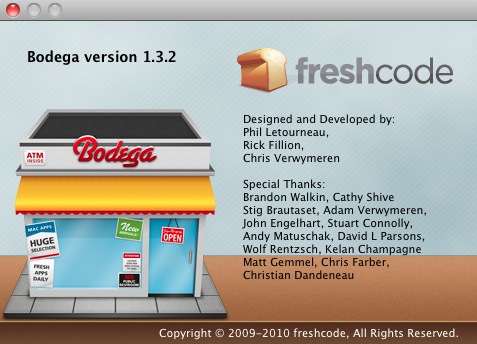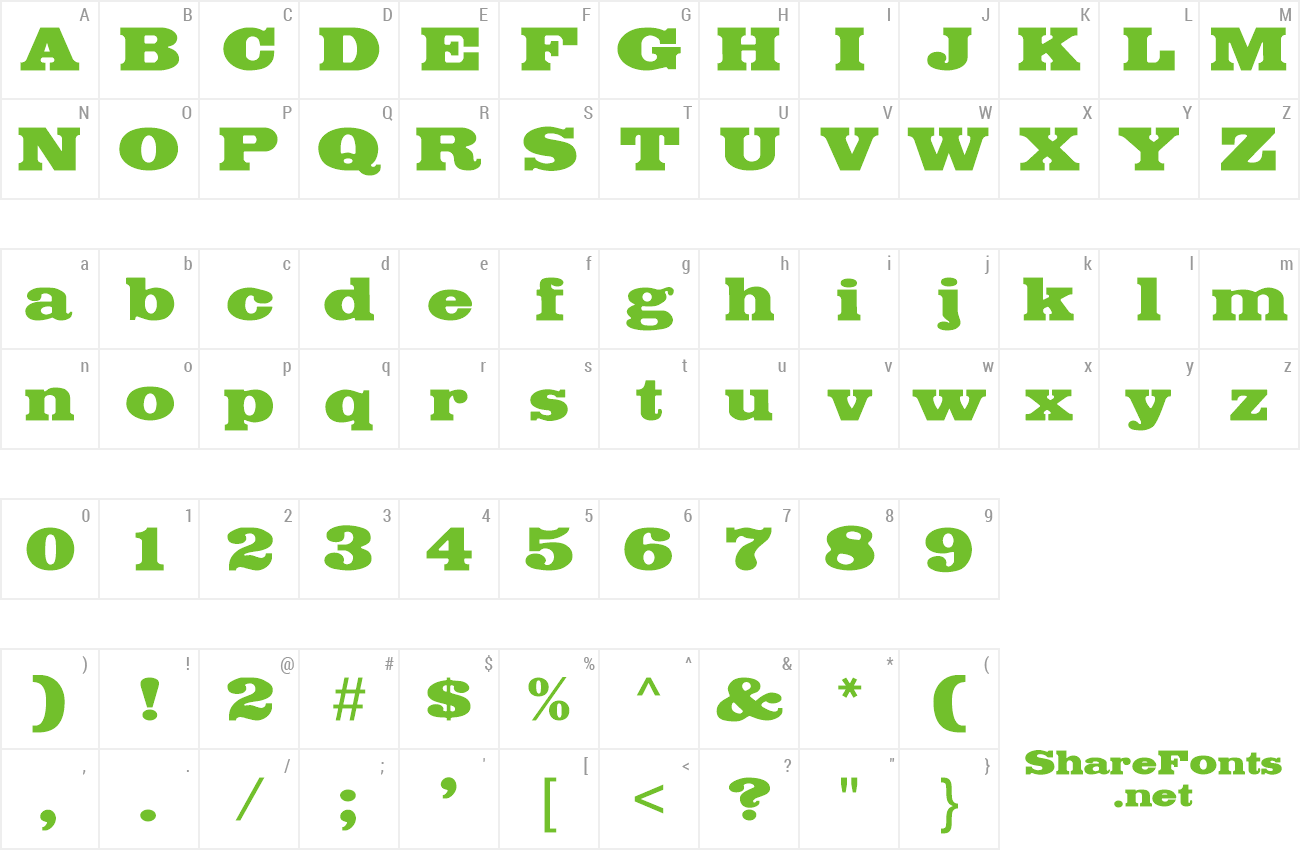A number of settings on a Mac are stored in Non-Volatile RAM, or NVRAM. NVRAM has a number of keys that contain values that define how the hardware is configured on a device that aren’t otherwise stored in the settings of an operating system.
You can list all of the variables available using the -p option, as follows:
Bodega is a download that does makes quick work of finding new apps for your Mac. Mac only: Trying out new software is fun. Digging around all over the internet to find cool stuff—not so much. Bodega is like a storefront right on your Mac's desktop, one that's chock-full of software apps from Mac developers around the world. Just download and install the Bodega app, and you have access to an ever-growing catalog of software to meet your every computing need. What's new in this version: Bug fixes. Welcome to Bodega, the world's most innovative way to discover and obtain the hottest and latest applications for your Mac. Bodega is like a storefront right on your Mac's desktop, one that's chock-full of software apps from Mac developers around the world. Just download and install the Bodega app, and you have access to an ever-growing catalog of software to meet your every computing need.
Mount Robson Provincial Park is a provincial park in the Canadian Rockies with an area of 2,249 km². The park is located entirely within British Columbia, bordering Jasper National Park in Alberta. Since 2006 Bodega has been curating the finest selection of footwear, apparel, and accessories for men and women from over 100 brands. Secure and easy checkout. Fast worldwide shipping. Shop online or visit our stores in Boston and Los Angeles.
Bodega Mac Os Catalina
nvram -pVariables in the available key pairs are managed using the nvram command as well. Each setting, which we’ll provide a list of below, can then be edited provided you have elevated privileges to do so, without any options defined. Most values are true and false and will need to be supplied as %01 for true and %00 for false. As an example, the following command will turn on Location Services on a Mac:

nvram LocationServicesEnabled =%01And the following will turn it back off:
nvram LocationServicesEnabled=%00Some settings won’t apply to certain models if the hardware doesn’t support that setting, but the following is a list of settings available on most models:
- ac-rk-token
- act-results: The results of the last Apple Diagnostics or Apple Hardware Test.
- ALS_Data and Test_ALS_Data
- AutoBoot: Defines how the system boots (e.g. %00-%03)
- blacklight-level: Defines the level of the backlight (e.g. %d9%0a)
- bluetoothActiveControllerInfo: Shows information about the active Bluetooth Controller (e.g. %8f%82%ac%05%02%00%00%003%14dv%ba%b5%c3A)
- bluethoothInternalControllerInfo: Shows information about the internal Bluetooth Controller (e.g. %00%ac%05%00%00%00%00%00%00%8c%85%90@%a4k)
- bodega-boot-to-black
- boot-args: Provides for arguments for use when booting the kernel (or instructions sent to the kernel such as don’t bring any chicken, er, I mean don’t allow 32-bit software to be run or disable rootless (sudo nvram boot-args=“rootless=0″). Also includes:
- debug=0x1d4e
- debugshell=2
- kdp_match_name=mojo
- watchdog=0
- smc=0x2
- -pbmkp rtc=1
- nvme=0x1
- medetect_panic=1
- dither=0
- legacy_hda_tools_support=1
- intcoproc_unrestricted=1
- -tconpanic
- -pbmkp
- -v: boots in verbose mode
- BootAudio: Indicates whether the startup chime will be played on models from 2017 or earlier (e.g. %00 or %01)
- caterr-reset-disable:
- csr-active-config: Shows the policy on third party kernel extensions (e.g. %ff)
- csr-data: Defines a policy on third party kernel extensions
- DisableEfiPackageCstates
- display-config: Resolution for supported displays.
- EFIBluetoothDelay: Time system waits for a wireless keyboard during boot (useful in data centers)
- efi-Apple-payload0, eft-apple-payload0-data, efi-apple-payload1, and efi-apple-payload2: UUID, EFI path, etc (e.g. <array><dict><key>IOMatch</key><dict><key>IOProviderClass</key><string>IOMedia</string><key>IOPropertyMatch</key><dict><key>UUID</key><string>7CD53879-001B-4AC9-8D3C-13768C6883B9</string></dict></dict><key>BLLastBSDName</key><string>disk0s1</string></dict><dict><key>IOEFIDevicePathType</key><string>MediaFilePath</string><key>Path</key><string>EFIAPPLEUPDATERSMULTIUPDATERThorUtil.efi</string></dict></array>)
- efi-apple-recovery: Path to firmware information
- efi-backup-boot-device-data: path to a backup efi file
- efi-backup-boot-device-data-data: Same as above but encoded (I think).
- efi-boot-device: Path with efi but with last booted (BLLastBSDName)
- efi-boot-device-data: Just the path to the efi file with the UUID directory
- Eos-fdr-cache-uuid: The UUID, but not the useful one used elsewhere
- eos-restore-failure-uuids
- fmm-computer-name: The name given to the computer at boot time
- gpu-policy: Enables the GPU on some models of computers
- HW_BOOT_DATA: Hardware boot data
- InstallWindowsUEFI
- LocationServicesEnabled: Enables (e.g. %01) or disables (e.g. %00) location services
- multiupdater-0: Encoded multi updater used in efi-apple-payload0
- previous-system-uuid: Previous uuid used, if available.
- prev-lang:kbd: The previously selected keyboard language (e.g. en-US:0, en:2, GB:2)
- security-mode: Used on some models to enable firmware passwords
- security-password: When security-mode is used, used to set the firmware password
- SmcFlasherResult (e.g. %00%00%00%00%00%00%00%00%00%00%00%00%00%00%00%00)
- SystemAudioVolume: How loud the audio volume is (e.g. 7)
- SystemAudioVolumeDB: Audio volume encoded %de which decodes to 222
- ThorUpdateResult: Thunderbolt updater (e.g. %00%00%00%00%00%00%00%00)
The above list is not complete as I’ve not managed to change all of these in a useful manner. If you know what one is that I didn’t define, let me know! If you get in over your head, never fear, the following article will allow you to clear the values back to defaults:
Cisco, NetApp, Qlogic, the former Xserve RAID and a number of other appliances I’ve used over the years also use nvram to store similar variables. I’ll try and write up the similarities and discrepancies at some point. And good luck if you’re mucking around with this stuff.
Is your Mac up to date with the latest version of the Mac operating system? Is it using the version required by a product that you want to use with your Mac? Which versions are earlier (older) or later (newer, more recent)? To find out, learn which version is installed now.

If your macOS isn't up to date, you may be able to update to a later version.
Bodega Mac Os Download
Which macOS version is installed?
From the Apple menu in the corner of your screen, choose About This Mac. You should see the macOS name, such as macOS Big Sur, followed by its version number. If you need to know the build number as well, click the version number to see it.
Which macOS version is the latest?
These are all Mac operating systems, starting with the most recent. When a major new macOS is released, it gets a new name, such as macOS Big Sur. As updates that change the macOS version number become available, this article is updated to show the latest version of that macOS.
Bodega Mac Os Update
If your Mac is using an earlier version of any Mac operating system, you should install the latest Apple software updates, which can include important security updates and updates for the apps that are installed by macOS, such as Safari, Books, Messages, Mail, Music, Calendar, and Photos.
Bodega Mac Os X
| macOS | Latest version |
|---|---|
| macOS Big Sur | 11.3 |
| macOS Catalina | 10.15.7 |
| macOS Mojave | 10.14.6 |
| macOS High Sierra | 10.13.6 |
| macOS Sierra | 10.12.6 |
| OS X El Capitan | 10.11.6 |
| OS X Yosemite | 10.10.5 |
| OS X Mavericks | 10.9.5 |
| OS X Mountain Lion | 10.8.5 |
| OS X Lion | 10.7.5 |
| Mac OS X Snow Leopard | 10.6.8 |
| Mac OS X Leopard | 10.5.8 |
| Mac OS X Tiger | 10.4.11 |
| Mac OS X Panther | 10.3.9 |
| Mac OS X Jaguar | 10.2.8 |
| Mac OS X Puma | 10.1.5 |
| Mac OS X Cheetah | 10.0.4 |